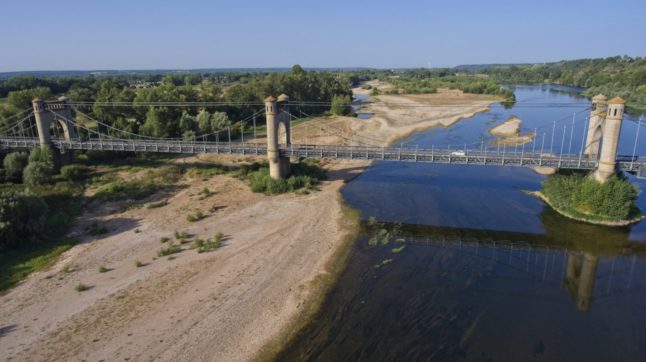The demonstration caps a series of tumultuous shareholder meetings at major corporations in Europe as activists step up pressure on companies to reduce their carbon footprints.
“We regret that we had to take exceptional measures both in calling in the police and in strictly controlling access to this assembly,” TotalEnergies chief executive Patrick Pouyanne told a few hundred attendees in a concert hall in the French capital.
French police earlier in the morning used tear gas to disperse protesters who had managed to sit on the ground in front of the venue, the Salle Pleyel, but ignored three warnings to move.
🔴 Après #BP et Shell, l’AG électrique de #TotalEnergies à Paris. Le géant français des hydrocarbures ciblé par un groupe d'associations Green et une partie de ses actionnaires en désaccord avec la politique climatique de #Total en #Ouganda @ClementLanot
pic.twitter.com/5mSKqWVy3u— Ulysse Paris (@ulyssepariser) May 26, 2023
A couple of hundred protesters, however, remained on either side of the street blocked off by police outside the venue, as shareholders entered the hall.
The police said four people had been detained.
“All we want is to knock down Total,” protesters chanted.
In reference to rising global temperatures, they also bellowed: “One, two and three degrees, we have Total to thank”.
Some poured a black liquid over their heads.
The company wanted to avoid the chaos of last year when activists prevented some shareholders from attending the annual meeting.
This year, the firm placed two-metre (6.5-foot) high plexiglas screens to separate off speakers on stage from members of the public at the concert hall.
It also forbade attendees and journalists from using their smartphones inside the venue.
‘Go faster’
Climate campaigners are growing impatient with oil majors and other companies over their impact on the planet.
Energy giants posted record profits last year as Russia’s war in Ukraine sent oil and gas prices soaring.
During the annual shareholders’ meeting of British group Shell on Tuesday, activists sang “Go to hell Shell!”
TotalEnergies plans to allocate a third of its investments in low-carbon sources of energy and reach 100 gigawatts of renewable electricity capacity by 2030.
But France’s energy transition minister, Agnes Pannier-Runacher, urged the company to speed things up on Friday.
“Total invests in renewable energies, but the challenge is to go faster, stronger and above all faster,” she told FranceInfo radio.
Pouyanne told shareholders that “climate is at the heart of our concerns” and that his group has done more than others to invest in renewables.
But as world oil demand is growing and “if TotalEnergies doesn’t respond to this demand, others will do it for us”.
‘The worst’
Marie Cohuet, spokeswoman for climate campaigners Alternatiba, said TotalEnergies “embodies the worst of what is done in terms of the exploitation of people and the planet”, Cohuet said.
One shareholder, who gave his name as Jean-Paul, defended himself as he made his way in.
“We are all concerned by climate issues, but there are also economic aspects, employment,” he said.
TotalEnergies’ some 1.5 million individual shareholders expected to attend the meeting online or in person are to cast votes twice on climate-related issues during the assembly.
Investors are first to vote on the group’s proposed climate strategy.
They will then also be polled on a motion for TotalEnergies to reduce its greenhouse gas emissions in line with the 2015 Paris accord’s goal of limiting global warming to 1.5 degrees Celsius above pre-industrial levels.
The vote on the motion, which was put forward by 17 investors who together hold almost 1.5 percent of shares, is purely consultative.
TotalEnergies operations include liquefied natural gas and oil projects in the United Arab Emirates, Iraq, Papua New Guinea and Uganda, where it has come under fire for a pipeline project activists say threatens a fragile ecosystem and livelihoods.
The French giant has also sparked controversy over posting a record net profit of $20.5 billion for last year, how much taxes it pays in France, and how much it pays Pouyanne.
A 10-percent hike on part of his salary for this year was to be discussed at Friday’s meeting.



 Please whitelist us to continue reading.
Please whitelist us to continue reading.
Member comments